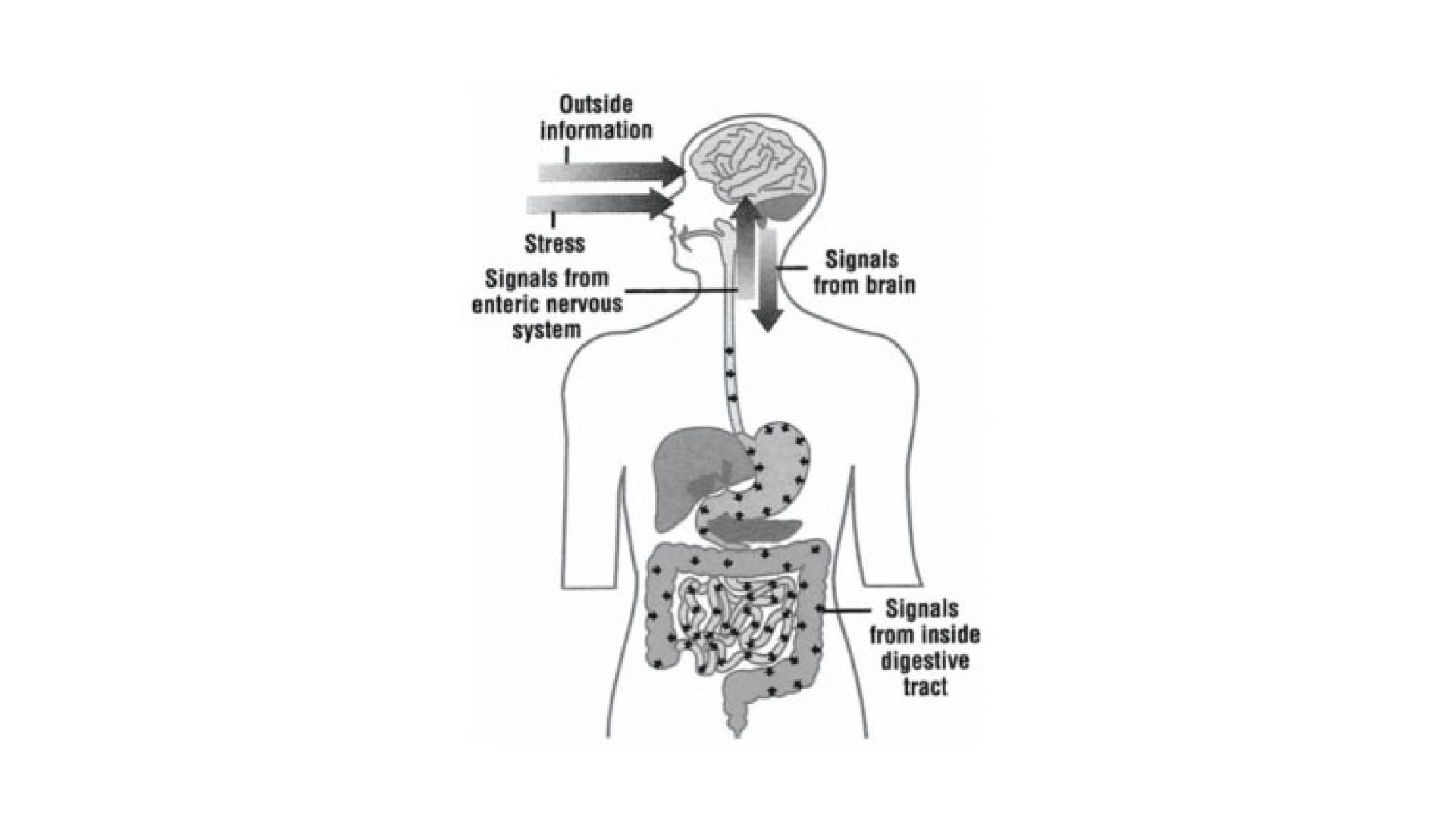“It is not the brains that matter most, but that which guides them—the character, the heart, generous qualities, progressive ideas.” ~Fyodor Dostoyevsky (1821-1881) Russian novelist
We all know about the brain in our head, but scientists are now talking about a second brain in our gut. If you’ve ever had butterflies before an important situation or had an odd feeling that something wasn’t right –or possibly even dangerous– this was your second brain in action, the brain in your gut. It’s called the Enteric nervous system.
During fetal development, our gut (esophagus, stomach, small intestine and colon) and our primary brain develop out of the same tissue and cells. One developed into the brain and central nervous system and the other developed into our gut. They became connected by the massive vagus nerve. Studies show that 90% of fibers in the vagus nerve carry information from the gut to the brain. When one brain becomes upset, the other one joins in. Everyday emotional well-being may rely on messages from our brain below to our brain above.
Over half of all the nerve cells in our bodies are located in our gut and they are estimated between 100 and 500 million. Our gut contains over 20 types of neurons and also houses neurotransmitters. According to researchers, our enteric system sends and receives impulses, records experiences and responds to emotions. The neurotransmitter serotonin, which is essential to feelings of well-being, is largely (about 95%) located in our gut. Our digestive process begins when serotonin is released into the wall of the intestines, which have at least 7 types of serotonin receptors. These receptors signal nerves cells to start digestive enzymes and to move contents through the intestines. When the levels of serotonin are increased in the brain through medication, it often provokes GI issues as a side effect of increased levels there, too.
While it’s hard to tell which comes first, physiology of the gut or the psychology of the brain, one thing is certain – they are both interconnected and influence the emotional limbic system. Brains control behavior. Just like our primary brain, our gut brain has a variety of behavioral programs stored. Our digestive state determines which program runs in our gut. The link between emotional stress and physical stress is undeniable and studies are now showing that what happens in early life, along with genetic background, strongly influences how a person will respond to stress throughout their life. This influences how their gut will respond as well.
In order to get more in tune with your gut brain, you can start by paying attention to what’s going on in your digestive system and process. This system reacts to and digests our inward and outward experiences. Many mystical and natural healing practices consider the belly to be a major center of life energy, health and higher consciousness. When we become more aware of both of our brains, their functions and feedback, we can begin to have them working more in sync and operating at their most optimal levels.
You may have noticed that your gut starts making noise and movement even if you hadn’t recently eaten. This is an example of our enteric nervous system becoming active and involved in whole body processes. This valuable system is one of guidance, often related to ‘gut feelings’ and propels us forward in our quest for expansion and our fullest human potential. When we take time to come into relation with our gut, we find our instincts and intuition are often heightened. Our body is intelligent beyond what we are capable of measuring. New ideas and evolution are continually feeding us, both through our head and our gut. Our task is to find ways to listen.

